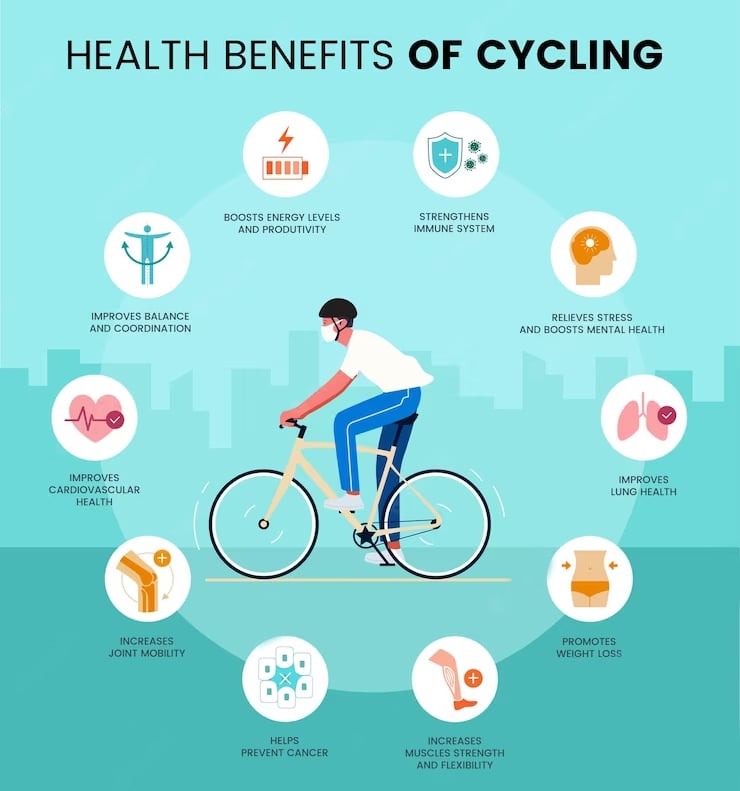
Cycling offers numerous benefits, including improved cardiovascular health, weight management, increased muscle strength, and enhanced mental well-being. It's a low-impact exercise that can help reduce stress, improve balance and coordination, and even lower the risk of certain diseases.
What You May - Or May Not Know About Cycling
Physical Benefits:
Cycling is a great form of aerobic exercise that strengthens the heart, lungs, and blood vessels, reducing the risk of heart disease and improving circulation.
Cycling burns calories and helps build muscle, contributing to weight loss and overall health.
Cycling engages various muscle groups, particularly in the legs, glutes, and core, leading to increased strength and tone.
As a low-impact activity, cycling is easier on joints than high-impact activities like running, making it a good option for people with joint pain or limitations.
Cycling helps improve balance and spatial awareness, strengthening stabilizer muscles in the legs.
Mental Health Benefits:
Stress Reduction: Cycling releases endorphins, which have mood-boosting effects and can help reduce stress, anxiety, and depression.
Cognitive Stimulation: Cycling improves blood flow to the brain, enhancing cognitive function and focus.
Improved Sleep: Regular cycling can contribute to better sleep quality.
Other Benefits:
Reduced Disease Risk:
Cycling can help lower the risk of developing heart disease, cancer, and other chronic diseases.
Environmental Friendliness:
Cycling is a sustainable mode of transportation, reducing emissions and helping combat climate change.
Social Connection:
Cycling can be a social activity, whether it's joining a cycling group or using it as a way to commute to work or school.
Cost-Effective:
Cycling is a relatively inexpensive way to stay active and healthy.




Click on Link Above

SERVICES:
Mobile Bicycle Repair
Contact us:
info@bbrbikerepair.com
© 2025. All rights reserved BBR
Payments Accepted
Zelle
Cash, Credit/ Debit
Apple Pay
Google Pay
Samsung Pay
PayPal
Venmo


Bobby's Bicycle Repair & Sales
holiday closings:
LABOR DAY
MEMORIAL DAY
JUNETEENTH DAY
thanksgiving DAY
CHRISTMAS DAY
NEW YEARS DAY
4th OF JULY
Privacy Policy Disclaimer
